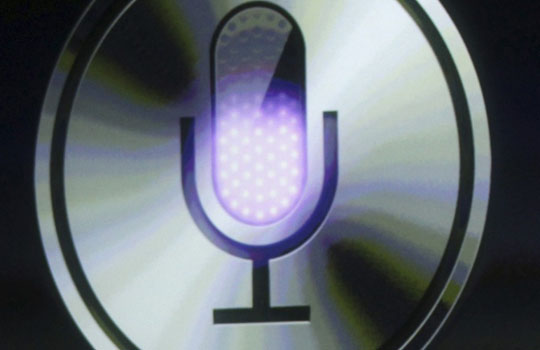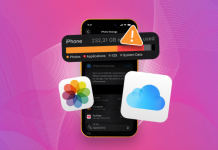 At this point everyone knows what Siri is and how it’s intended to be used. While results tend to vary based on your cellular carrier and signal strength, it certainly has tremendous potential to change the way we interact with our gadgets. There is a bit of a problem however; it’s alleged that Siri is absolutely gobbling up bandwidth on the carriers’ networks around the world.
At this point everyone knows what Siri is and how it’s intended to be used. While results tend to vary based on your cellular carrier and signal strength, it certainly has tremendous potential to change the way we interact with our gadgets. There is a bit of a problem however; it’s alleged that Siri is absolutely gobbling up bandwidth on the carriers’ networks around the world.
I hate to be that guy, but, nope, Siri isn’t gorging itself on all the mobile bandwidth.
The Washington Post ran an article last week that originally suggested that this was a problem:
Siri’s dirty little secret is that she’s a bandwidth guzzler, the digital equivalent of a 10-miles-per-gallon Hummer H1 … Siri’s data-hogging ways are a problem for more than just those willing to foot the bill. As networks become congested, everyone’s service deteriorates. Private desire becomes a public issue. Calls are dropped or never completed; Internet access slows. First-class airline passengers don’t really compromise service for those in coach. But bandwidth hogs do.
We’ve been hearing the “network has limits” complaint for years, and it’s easily the biggest argument used by carriers and ISPs looking to increase revenues by introducing usage based billing in a number of countries. What the original Washington Post article didn’t do was provide any numbers, or facts to chew on. Instead, we’re left with the opinion of one journalist, largely based on the results of a study done by Arieso earlier this year. Ironically, the study in question primarily focuses on iPhone 4S data consumption on the whole:
The most significant change in consumer behaviour between 2010 and 2011 data has been catalysed by the introduction of the iPhone 4S. iPhone 4S users download 2.76 times as much data as users of the iPhone 3G. And while an Android-powered device maintains last year’s position at the top of the table for uplink data volumes, with HTC Desire S users typically uploading 3.23 times as much data as iPhone 3G users, the iPhone 4S falls just behind in this category with a typical 3.20 times as much data uploaded.
Alright, so just to get this straight, Arieso says the iPhone 4S is one of the most data-hungry phones on mobile networks today, then The Washington Post decides to extend that argument to Siri, because Siri is available on the iPhone 4S, and it’s the first phone to get Siri integration. Paul Farhi, reporting for the Washington Post, states in his article, “Atlanta firm that specializes in mobile networks, found that the Siri-equipped iPhone 4S uses twice as much data as does the plain old iPhone 4 and nearly three times as much as does the iPhone 3G.” In one breath Farhi alludes to the fact that Siri is responsible for the huge bandwidth increase, and in the next he disproves himself, stating that the phone on the whole is responsible for the burst in data usage, and not Siri in specific. Great job. Journalism at its finest.
So, that brings us to today. Forbes has an article up online from Gary Morgenthaler, a partner at Morenthaler Ventures, and someone who also happened to serve on the boards of both Siri and Nuance Communications. Let’s just say that when it comes to Siri, this guy knows what he’s talking about:
Siri alone cannot be responsible for that massive increase … That’s because Siri’s average data consumed per query is less than 63 kilobytes, according to Ars Technica; and it’s a number I can confirm, having served as a Siri board member for years. (63 kilobytes by the way, relative to iCloud, YouTube, Pandora and others, is de minimus.) Assuming, on the high side, that iPhone users invoke Siri an average of 15 times per day, that will generate 28 Mbytes of data traffic per month. Siri’s 28 Mbytes would be between 5% to 8% monthly net addition, depending upon which study you choose. That leaves 92% to 95% of the incremental traffic unexplained.
So there you have it, using Siri will not ballon your data plan, it won’t cost you a tremendous amount of money in overage charges, and it’s certainly not responsible for the doom and gloom that Farhi is claiming. At this point we have to ask, did Farhi even read the report from Arieso? The synopsis on its website, had he taken a moment to read it, doesn’t even mention Siri at all.
Keep using Siri. It’s not going to bring down the whole mobile network, no matter what the carriers want you to believe.






